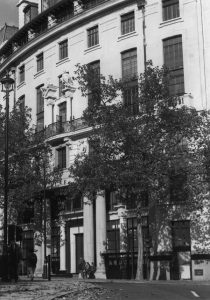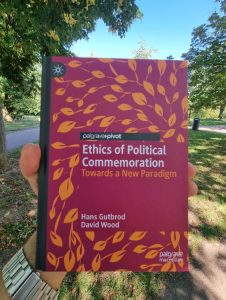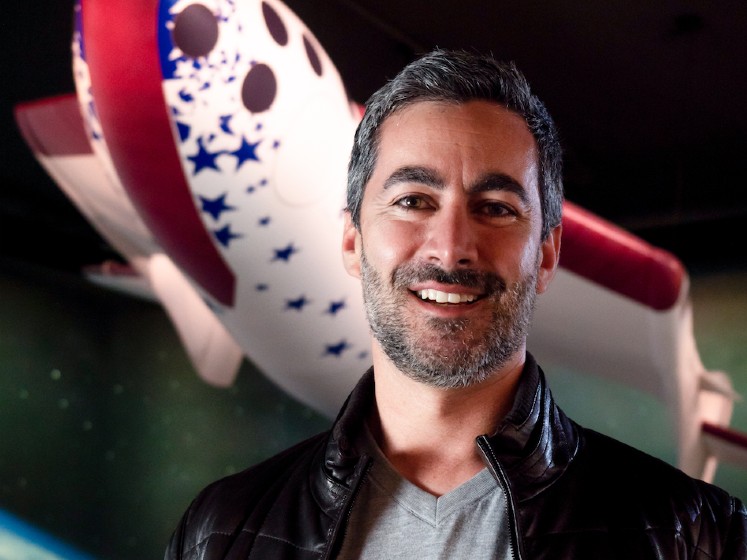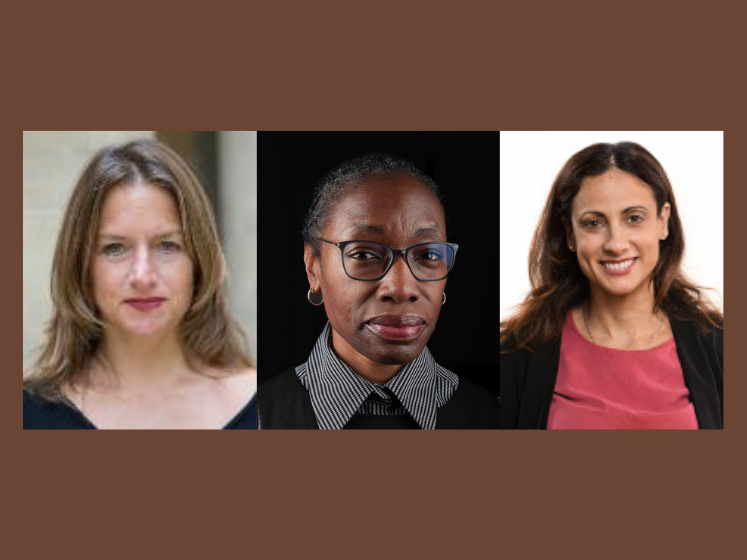Alumnus Hans Gutbrod (BSc 1994 and PhD 2000) reflects on how what he learned in the LSE Department of International Relations in the early 1990s helped him develop a new set of ideas, thirty years later, for his book on the Ethics of Political Commemoration.

Sometimes what you learn pays off many years later. This has been my recent experience as I worked on a book on Ethics of Political Commemoration. During the Karabakh War in late 2020, I had been struck by how fragmented the debate on social media seemed to be.  What we had learned in the Ethics of War course at LSE, taught by Michael Donelan in the early 1990s, was directly relevant. Having a just cause is not enough to legitimise the use of force. You need a good intention and legitimate authority as well. Philip Windsor, who led our class for the course, had discussed whether the German wording of “das äußerste Mittel” (“the ultimate means”) might be the better rendering of the notion of last resort. Such a multidimensionality countered the fragmentation of the debate.
What we had learned in the Ethics of War course at LSE, taught by Michael Donelan in the early 1990s, was directly relevant. Having a just cause is not enough to legitimise the use of force. You need a good intention and legitimate authority as well. Philip Windsor, who led our class for the course, had discussed whether the German wording of “das äußerste Mittel” (“the ultimate means”) might be the better rendering of the notion of last resort. Such a multidimensionality countered the fragmentation of the debate.
Living in Tbilisi, these issues cut close. I wrote a short analysis on the 2020 Karabakh conflict. The Just War Theory framework was still present in my mind when I was going back and forth with a colleague, David Wood, with whom I had been working on surveys in Georgia, and, more recently, in Yemen. He had highlighted that dealing with the past was an immense challenge in the contexts he was working in, in the Middle East and North Africa.
I drew on the Ius ad Bellum criteria of the Just War tradition and sketched out a few ideas. When mobilising the past for political purposes, did not some of the same criteria apply? One needs not only a just cause but also a good intention, legitimate authority, and a reasonable chance of success. David expressed interest. This being early 2021, he suggested doing an online presentation of this framework to his students. The ideas resonated, and we took them to Chatham House next.
When mobilising the past for political purposes, did not some of the same criteria apply? One needs not only a just cause but also a good intention, legitimate authority, and a reasonable chance of success.
Framing the Ethics of Political Commemoration
Together, we developed this approach into a book. The Ethics of Political Commemoration: Towards a New Paradigm sets out a set of principles to consider whether we should, as a public, engage in remembrance, and then also how to do it – for example by not replacing one circular narrative with another, and also by insisting that when contesting major issues, we are served better by strengthening our moral autonomy than by being pulled into a tit-for-tat of recrimination.
From our LSE IR course way back, I remembered that such abstract points need to be made with memorable illustrations, as Michael Walzer had done in his landmark book Just and Unjust Wars. By themselves, the criteria, like a grammar, are too dry to be engaging. This was also a core lesson of studying with Christopher Coker. The stories people tell matter. What people imagine usually is indicative of how they see the world. Literature, therefore, plays a prominent role in reflecting on remembrance.
This was also a core lesson of studying with Christopher Coker. The stories people tell matter. What people imagine usually is indicative of how they see the world. Literature, therefore, plays a prominent role in reflecting on remembrance.
In finding compelling illustrations, practical experience helped. Having worked in the Caucasus region since 1999, I had seen how people often got stuck in their past. There were positive examples, too, that suggested that you can use the past to set yourself on a determined course to do better. David added his experience from the contexts he knows well. We also drew on other positive cases, for example from Ireland and its recent “decade of centenaries.”
To us, many examples illustrated that a good ethical framework can help to order, improve, and sometimes even resolve debates. Improving the debates is not just an academic exercise. Some discussions on the past are highly divisive at a time when democracies should find constructive ways of addressing the existential challenges they face.
..a good ethical framework can help to order, improve, and sometimes even resolve debates. Improving the debates is not just an academic exercise. Some discussions on the past are highly divisive at a time when democracies should find constructive ways of addressing the existential challenges they face.
Being Grateful for Conversations
How do you give back to people who no longer are around? One of the small things I do – also a way of commemorating – is contributing to the Wikipedia pages of the people I am grateful to, adding publications, a biographical detail, references to their interviews, as a virtual version of visiting the cemetery and tending to a grave. Sadly, that now includes Christopher Coker, whom we lost in September 2023.
I learned a lot from writing the book. It is only in figuring out a larger arc that ideas are fully tested. Such learning remains a strong argument for long-form modes of publication, even if you can expect fewer and fewer people to read them. (Our publisher, too, chopped the book into chapters that are individually accessible online. Each visit by a logged-in university user is a small contribution to their revenue model.)
It is only in figuring out a larger arc that ideas are fully tested. Such learning remains a strong argument for long-form modes of publication, even if you can expect fewer and fewer people to read them.
On some things, I had been astoundingly naïve. I thought that writing the book with someone else would be half the work. Instead, it turned out to be three times the effort. David and I engaged in edit wars, with the frontline of mark-ups surging back and forth, as if the manuscript was our little Flanders. Fortunately, we did not get bogged down. I would like to think that the book is at least four times as good as anything I would have written alone.
That ties, perhaps, into the theme that I started with – ideas require a sustained exchange to develop. Trade is a better analogy than conflict here. Does free trade really make everyone better off? We may still be debating that, especially how to define “everyone” and “better off.” The exchange in ideas, however, has been good for us. I barely remember any direct quotes from classes with Philip Windsor or tutorials with Christopher Coker, but I remember the spirit and enthusiasm for developing ideas and enriching them further.
I barely remember any direct quotes from classes with Philip Windsor or tutorials with Christopher Coker, but I remember the spirit and enthusiasm for developing ideas and enriching them further.
 A book is only a beginning of a broader conversation. We are happy to share the ideas in online talks to explore how this framework might apply across contexts. This is how Ethics of Political Commemoration first got its start, and we anyway hope that its main use is to improve the conversations we have.
A book is only a beginning of a broader conversation. We are happy to share the ideas in online talks to explore how this framework might apply across contexts. This is how Ethics of Political Commemoration first got its start, and we anyway hope that its main use is to improve the conversations we have.
If that is of interest, do check out the book and get in touch if you want to connect for a guest talk or seminar.
“Ethics of Political Commemoration: Towards a New Paradigm”, by Hans Gutbrod and David Wood, is published by Palgrave/MacMillan and more details are available here.
Visit our Alumni webpage to find out more about our community
Check out other Alumni news on our blog
This article represents the views of the author, and not the position of the Department of International Relations, nor of the London School of Economics.





